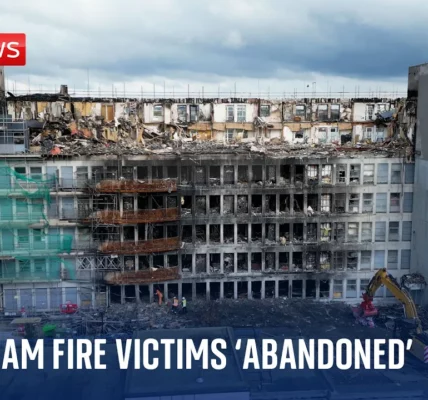Iran Launches Missile Attack on Israel: An In-Depth Analysis

This article explores the recent missile attacks launched by Iran against Israel, detailing the motivations behind the strikes, the immediate consequences, and the international response. The situation remains volatile, highlighting the ongoing tensions in the Middle East.
Introduction
In a significant escalation of hostilities, Iran launched a barrage of nearly 200 missiles targeting Israel, claiming the assault was a form of retaliation for the assassination of key leaders within Iranian proxy groups, including a prominent Hezbollah leader. This unprecedented attack comes amid ongoing conflicts in the region and a backdrop of military actions by Israel against Hezbollah in Lebanon. As the situation unfolds, both regional and global powers are reacting strongly, indicating a potential shift in the balance of power in the Middle East.
The Context of the Attack
The missile strikes by Iran are rooted in a complex history of animosity and conflict between the two nations. Following the assassination of three leaders associated with Iranian-backed groups, Tehran viewed the missile attack as a necessary retaliation. This incident has highlighted the ongoing tensions that have been exacerbated by military incursions and targeted strikes by Israel against Iranian interests across the region.
Iran’s Motivations
Iran’s decision to launch the missile strike was influenced by several factors:
- Retaliation for the death of key military figures.
- Demonstrating military capability and resolve to its adversaries.
- Reinforcing its support for allied groups like Hezbollah.
The Nature of the Attack
The missile assault involved multiple waves of strikes aimed at various targets, including military installations and civilian areas. While many of the missiles were intercepted by Israeli defense systems, some managed to hit populated regions, causing panic and destruction.
Immediate Consequences of the Attack
The aftermath of the missile strikes has been swift and severe. Israeli leaders, including President Biden, have labeled the attack as “defeated and ineffective,” yet they warn that there will be significant consequences for Iran’s actions.
Casualties and Damage Reported
Initial reports indicate that while there were no immediate casualties from the missile strikes, the situation escalated with a separate terror attack in Tel Aviv, resulting in six deaths. The conflict’s impact is felt both in Israel and Lebanon, where airstrikes have led to numerous casualties.
Military Responses and Preparations
In response to the missile strikes, the Israeli Defense Forces (IDF) have prepared for potential retaliatory actions. They have emphasized their commitment to protecting Israeli citizens and maintaining military readiness:
- Increased airstrikes targeting Hezbollah positions in Lebanon.
- Heightened security measures across Israeli cities.
- Mobilization of reserve forces to bolster military readiness.
International Reactions
The global response to the Iranian missile strikes has been notable, with leaders from various countries expressing solidarity with Israel while condemning Iran’s actions.
United States’ Position
President Biden and Vice President Kamala Harris reaffirmed the U.S. commitment to Israel, emphasizing that the nation has the right to defend itself. They have indicated that the U.S. will continue to support Israel in its efforts to counter Iranian aggression.
Responses from Allied Nations
Allied nations, including the UK, have echoed similar sentiments, condemning Iran’s actions and expressing support for Israel’s right to self-defense. UK Prime Minister Rishi Sunak condemned the Iranian regime’s actions, further highlighting the growing international concern over the escalating violence.
The Broader Implications for the Region
The missile strikes have raised alarms regarding the potential for a broader conflict in the Middle East. The delicate balance of power is increasingly threatened, and the risk of escalation into an all-out war is palpable.
Potential for Escalation
Analysts warn that continued military actions by both Iran and Israel could lead to a broader regional conflict. The involvement of other state and non-state actors, including Hezbollah and various militant groups, complicates the situation further:
- Increased military engagement from Iran’s allies in the region.
- Potential for retaliatory strikes against Israeli interests abroad.
- Risk of civilian casualties exacerbating humanitarian crises.
Conclusion
The missile attack launched by Iran against Israel marks a significant escalation in ongoing tensions and hostilities within the region. As both nations prepare for further military engagements, the international community watches closely, urging for de-escalation while supporting their respective allies. The road ahead is fraught with uncertainty, and the potential for a wider conflict looms large. It is crucial for diplomatic channels to remain open as both sides navigate this precarious situation. We invite readers to stay informed by following our updates on this evolving story.
“`




